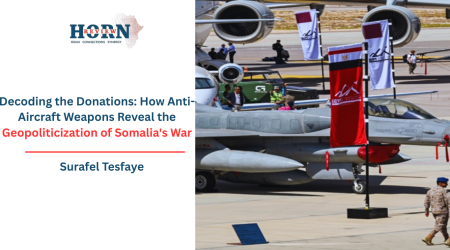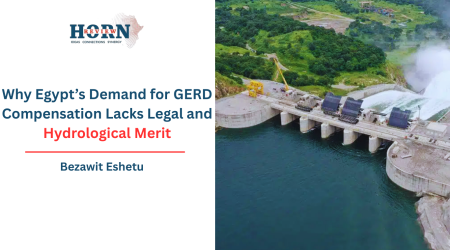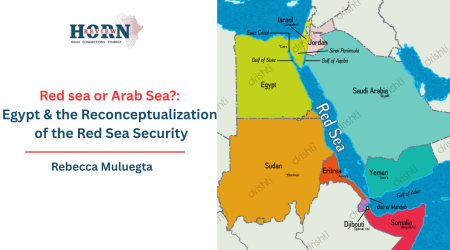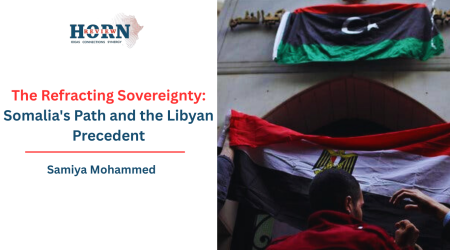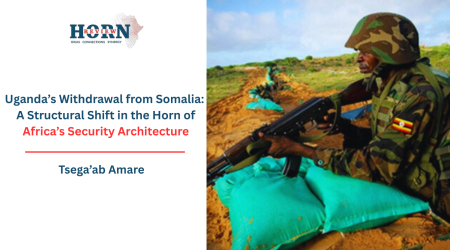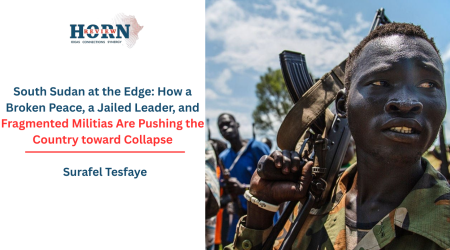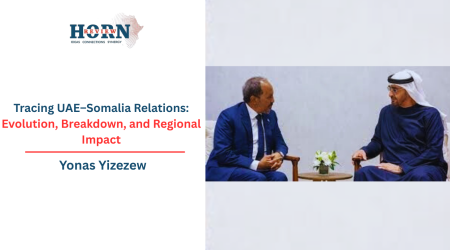
30
Jul
ISIS Claws in the Heartland: A Coordinated Threat to Ethiopia’s Stability
The recent arrest of 82 alleged ISIS operatives by Ethiopia’s National Intelligence and Security Service (NISS) marks a significant development in the country’s security landscape. These arrests reveal that the Islamic State, a transnational terrorist organization with a global agenda, has established a foothold within Ethiopia’s borders. According to NISS, these individuals were trained in Puntland, Somalia, and have been deployed to operate in Oromia, Amhara, the Somali Region, and Addis Ababa.
The group’s alleged objectives include establishing sleeper cells, coordinating attacks, and disseminating extremist propaganda. These efforts are reportedly linked to ISIS’s international financing and media networks, underscoring the transnational nature of the threat. The arrests highlight the urgency of a comprehensive response to prevent the destabilization of Ethiopia’s social and political fabric.
The geographical spread and scale of these arrests indicate that ISIS’s presence in Ethiopia is more than isolated acts of radicalization. Rather, it reflects a structured network with operational intent. The connection to Puntland – a semi-autonomous region in northern Somalia known for its relative stability and security challenges – is particularly concerning. Puntland has become a known base for ISIS-Somalia, which has grown in capability and autonomy within the broader ISIS framework.
The recruitment and training of Ethiopian nationals in Puntland, followed by their redeployment into Ethiopia, suggest a deliberate strategy aimed at internal destabilization. NISS alleges that these operatives were active in building infrastructure for terror activities, including sleeper cells, logistical networks, and propaganda channels to recruit vulnerable populations.
The link to ISIS’s global operations transforms this from a localized threat into part of an international terror network capable of leveraging resources and expertise beyond Ethiopia’s borders. The potential security risks include targeted assassinations, bombings in public spaces, attacks on critical infrastructure, and ideological campaigns designed to deepen ethnic and religious divisions. The consequences for national security, economic stability, and social cohesion could be severe.
This development requires consideration beyond immediate counterterrorism measures. It raises the question of whether Ethiopia is facing not only a domestic terrorist insurgency but also a coordinated campaign of geopolitical interference. This interference may be driven by external actors seeking to exploit internal vulnerabilities to undermine Ethiopia’s strategic ambitions.
Ethiopia currently stands at a critical juncture. The near completion of the Grand Ethiopian Renaissance Dam (GERD) symbolizes a major step toward energy self-sufficiency and regional influence, challenging Egypt’s longstanding control over Nile waters. Additionally, Ethiopia’s agreement with Somaliland to secure maritime access – a move rejected by Somalia’s Federal Government – represents a significant geopolitical shift.
Both Egypt and Somalia have expressed opposition to Ethiopia’s strategic initiatives. Egypt has intensified diplomatic efforts against Addis Ababa and recently entered into a defense agreement with Somalia, which includes military cooperation ostensibly aimed at counterterrorism. This places Egyptian military presence near Ethiopia’s borders amid growing regional tensions.
The emergence of ISIS operatives trained in Puntland, adjacent to Somaliland and Somalia’s contested territories, coincides with these geopolitical disputes. Despite Puntland’s recognized role as a base for ISIS-Somalia, efforts by Mogadishu and its partners to dismantle these operations have been limited or ineffective. The U.S.-led Terrorist Financing Targeting Center (TFTC) has also highlighted ISIS facilitators operating from Somalia, reinforcing the cross-border threat.
This scenario exemplifies modern hybrid warfare, wherein state and non-state actors exploit extremist groups to achieve geopolitical objectives with plausible deniability. The intent may not be outright conquest but containment – disrupting Ethiopia’s progress by fostering instability that diverts national attention and resources inward.
The arrest of 82 ISIS operatives is a serious indicator of the challenges ahead. Ethiopia’s ambitions for energy independence, economic development, and regional leadership are under threat from a multifaceted challenge: violent extremism from within and external geopolitical pressures.
It is imperative that the Ethiopian government act decisively, deploying all available resources and diplomatic tools to address both the immediate security threat and its broader geopolitical context. The preservation of national stability and the realization of Ethiopia’s strategic goals depend on a comprehensive and coordinated response.
By Samiya Mohammed,Researcher,Horn Review


